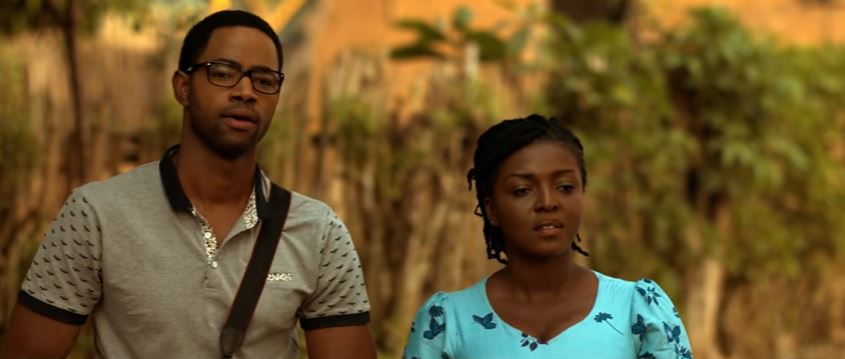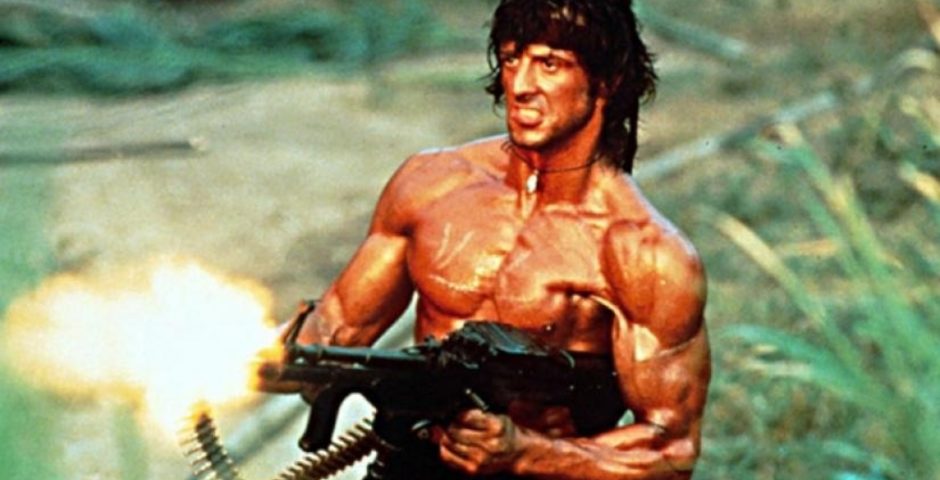The Ocean, Black in Belize
The only person I’ve confessed this to is my BFFFL: Going to the beach makes me sick.
One night, when we were sitting on the veranda of some James Town dive overlooking the ocean, I felt myself getting restless and queasy. Soon, I was just downright sick to my stomach.
“I don’t like coming to the beach,” I confessed.
Nana Darkoa, who I am convinced is an ocean spirit born into flesh, was horrified. She loves the beach.
“Why not?”
“It makes me sad. It reminds me of slavery. It brings to mind everything that was stolen and lost. It reminds me of families being ripped apart.”
She nodded pensively and said that she could see how I would feel that way. She looked out over the ocean from her seat and pondered what it must have been like for this to be the last thing Africans who were taken away from these shores would see.
“It wouldn’t look like this to them at all,” I said quietly, realizing this for the first time myself. “For them, the coast would be disappearing. They would be looking the other way.”
Sensing I was having a rough time, she asked me if I was ready to go. Does an Irish man like potatoes? I nodded and transported myself to the passenger side of her car particle by particle in nanoseconds.
It wasn’t always like this. When I was a child, I could spend hours at the beach, carefree in my ignorance while my siblings and I chased translucent crabs from hole to hole and collected sea shells to make jewelry. Secondary school ruined all of that for me, of course. That’s when I learned that trade winds and ocean tides brought Europeans in search of resources that are scare (or nonexistent) on their native lands to Africa, Asia, South America and the Spice Route, where their relationship morphed from being based on trade to all out destruction. The once beloved ocean became a symbol of Black oppression and white supremacy for me.
So it would seem odd that I would chose to spend six days in a place surrounded by the ocean, right? God works in mysterious ways.
As I mentioned previously, Belize is a true melting pot. The country is only populated with 400K+ people, but they are from all over the world. They identify as Belizean first, no matter what their ethnic origin. You drill down to the specifics from there: Mayan, Creole, Garifuna, Italian, Chinese and so forth. When we visit an area, Marshall and I always try to make an effort to learn as much about a place as time will allow. It’s always a special treat when a perfect stranger takes time out of their day to stand and talk with you about their human experience. I am always curious about the Black experience whenever I visit a new country or locality. The narrative we have been fed and often shell out ourselves is that present day Black life was borne from colonialism and slavery and is under siege everywhere you go, anywhere on the globe, no matter what. Imagine my surprise when Cyril, a 33 year old hotel manager, told me otherwise.
“The first thing you gotta understand is that Garifuna people was never a slave. My people were warriors. We fought the Spanish. My people are proud.”
His almond shaped eyes stared at me, unwavering in their gaze. His gaunt face looked like it was carved out of brown marble. He didn’t say another word until we had let that sink in.
We told him we had been trying to piece together Garifuna history as much as we could, but because most of it seemed to be oral history, it was difficult to verify anything.

The Belizean flag was such a surpise to me. A Black man, tall and strong…on a FLAG? How!? They don’t put “slaves” on flags and offer them the benefit of dignity, do they? I didn’t think so.
“Of course,” Cyril admitted. “White man don’t want you knowing our true history. It don’t serve his purpose. You know how Garifuna came to this place? On boats made in Africa. We came to trade and explore. We never come with no shackles here and here.”
He slapped his wrists and his neck to create the illusion of chains.
“Sometimes, when I look at you Blacks in Mississippi… in America, I pity you. I feel so bad for. Them sell you all like them sell chicken! But we are African people. STRONG people. We are a great people…but them not want you all to know that. Today, the chains are here.” He pointed to his head.
Cyril was excitable by now. (He was also a little drunk, as he had just returned home from Dangriga and had a difficult encounter with his mother.) He told us about how Garifuna youth of today are rejecting their heritage and refusing to their native tongue because they don’t want to be associated with Blackness.
“Them (light skinned Creoles) trying to tell us Garifuna we used to be slaves, but it never true. And because of that, our youth wanna be Creole. They wanna speak Creole. They wanna live the life them see on TV. They wanna eat rice and beans and steak instead of ground food. Our food will make them big and strong. But instead they wanna eat…”
“Pringles!” I said with a half laugh.
I told him I definitely sympathized. The trend in Ghana amongst the youth is definitely similar. So few people see the value in our traditions and our culture is slowly being replaced by some strange Judeo-Christian-Muslim- Juju anti-Blackness, anti-woman mix sheltered under the porous umbrella called “African tradition”.
There was a long, rectangular house behind us on the shoreline, made completely of thatched palm leaves. Two different people (both of Mayan descent) had told us it was a “voodoo house”, and that they do rituals and sacrifices in there. It was approaching the time of year when all the Garifunas would come for their annual “pilgrimage” to participate in the voodoo ritual. I pointed to it and asked Cyril about it. He laughed, half amused, half sneering.
“Ain’t no voodoo in there, my sister. Ain’t no animal sacrifices and so forth. You know what them talking about? A family reunion. We gather here in this temple…yes, temple…to give thanks for all that we have. And then we party. But because we have not taken the time to explain it to these people, because we speak in our OWN language and not theirs, because the dancing too fast, the drumming too fast, and because people get swept up in the spirit, them call it ‘voodoo’.”
Cyril snorted before he continued.
“It a Mayan man who said this? Was it not them and the Aztecs who used to slaughter people for them-a gods? Garifuna never slaughter no human people before. But because of this (points to his Black skin) them call it voodoo.”
We sat in silence for a moment while I chewed over his words. In Larteh, my father’s hometown, there is a fetish temple I have never been allowed to visit. We hurriedly walk by it every time we visit the town. On my most recent visit home, my dad happened to mention that that matrilineal great-great grandmother all the way down to my grandmother (who gave up her role to become a devout Anglican) served as priestesses in the house. Of course I was curious, and wanted to go see immediately, but my father forbade it. He gave some excuse about the inconvenience of having to buy Schnapps, etc.
I know that deep down, his unwillingness to visit the place is because of fear and shame. Fear that his Christian God will condemn him for entering a traditional house and that shame that almost every African has of his African-ness.
After all, African-ness is hunger, ineptitude, greed and poverty, isn’t it? Oh sure, we make great music and are superb athletes… but an African is incurious, dimwitted and illogical, isn’t he? Therefore tapping into anything that makes him/her uniquely African would only serve as a detriment to progress and development, wouldn’t it? Why else do we allow Mallams and Pastors to pray for our president, but would NEVER allow a traditional healer/priest to pour libation for his tenure? Africans are ashamed to be African… because we don’t know our history and we’ve bought into carefully crafted lies, wholesale.
This is what the conversations with Cyril, our skiff captain Steven, and listening to the leader of the dance troupe that performed for us at the resort reminded me of: that Africans are a mighty, intelligent and above all, good people. We don’t see ourselves as good.
“You know what the problem with the African is? We too kind. When the Europeans got lost on our shores, we gave them food and gold. After all, it was plenty, right? We gave them trust. But what they give us in return?” Cyril pursed his lips as he asked his rhetorical question.
As “enlightened” about Africa as I am, I began to form a picture in my head of things and events long passed from memory. I remember an elementary school teacher telling our class how the Gas were descended from a group in Nigeria that emigrated to present day Ghana on boats. Of course, I assumed they were canoes, since I have never seen a vessel crafted by Africans any larger than that…but surely we had boats much bigger (and faster) than that if Africans sailed across the Atlantic 700+ years ago? We developed systems of food storage and preservation for long journeys. Surely we knew how to use the stars to navigate. Why are we never taught these things about our ancestors; and more importantly, who is responsible for destroying that knowledge? I find this particularly troubling, especially since the Ministry of Education under the NDC government has sanctioned a social studies book to teach Ghanaian children about the “benefits of colonialism” to include how it “civilized” the African.
When I sat on the beach in Placencia the first day and I looked over the water, I didn’t have that same sense of panic and sorrow that I do when I look over the Atlantic in Accra or Cape Coast. It took me by surprise, but once I discovered that these waters in this particular area were governed by a different spirit it became clear why.
At the conclusion of our conversation, we discussed identity. Marshall’s answer was the most complex: he is Black American who acknowledges his genetic roots in Africa as well as Europe. I identifies as a hybrid. For Cyril, the answer was clear cut.
“I am an African.”
My heart skipped a beat.





